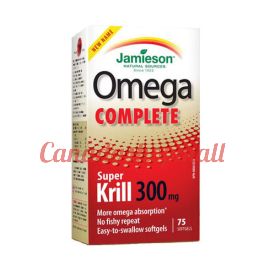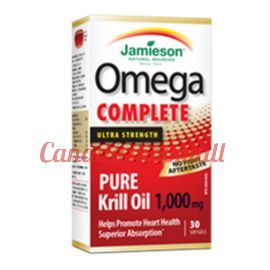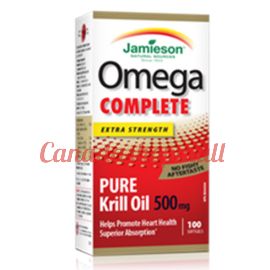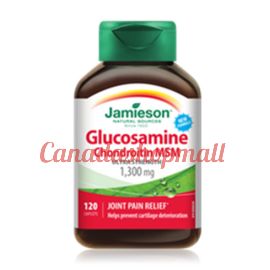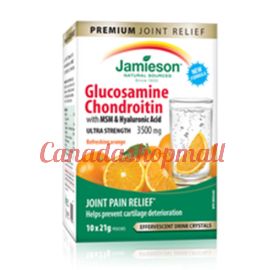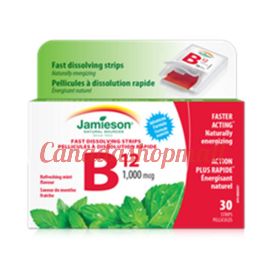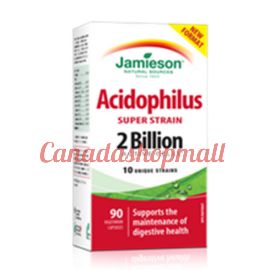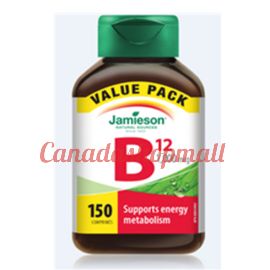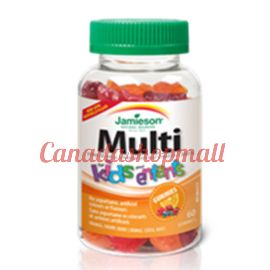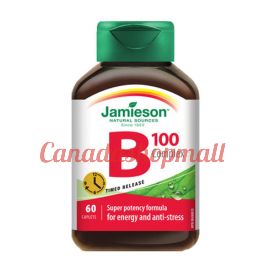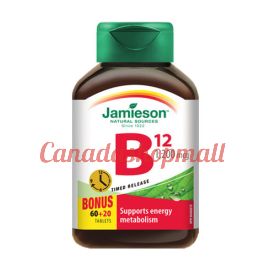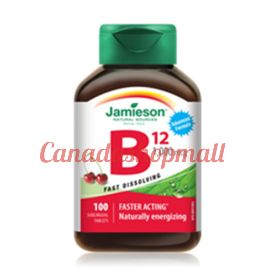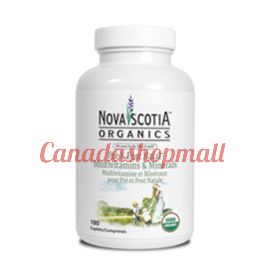We use cookies to make your experience better. To comply with the new e-Privacy directive, we need to ask for your consent to set the cookies. Learn more.
Quest Kid’s Daily One Chewable Multi 120tablets
$36.95
In stock
SKU
Quest Kid’s Daily One Chewable Multi 120tablets
Quest Kid’s Daily One™
chewable tablets
Quest Kid’s Daily One™ Chewable is a high-quality, well-balanced, one-a-day multivitamin and mineral supplement designed specifically to meet the needs of children from 4 to 13 years. Formulated as a great-tasting chewable tablet, this supplement provides all the nutrients required to maintain children’s overall good health.
- Buy 6 for $29.95 each and save 19%
- Buy 12 for $24.95 each and save 32%
HEALTH SOLUTIONS:
RECOMMENDED USE: Helps maintain overall good health.
DOSAGE FORM: Chewable tablets
RECOMMENDATIONS: Children 4 to 8 years: Take 1 tablet daily with food. Children 9 to 13 years: Take 1 or 2 tablets daily with food. Take a few hours before or after taking medication.
DESCRIPTION:
Each great-tasting chewable tablet of Quest Kid’s Daily One™ contains 500 IU of beta-carotene, 2000 IU of vitamin A, 1 mg of thiamine, 1.5 mg of riboflavin, 5 mg of niacinamide, 5 mg of pantothenic acid B5 (calcium d-pantothenate), 50 mcg of folate (folic acid), 1 mg of vitamin B6 (pyridoxine HCl), 5 mcg of vitamin B12 (cyanocobalamin), 75 mg of vitamin C (calcium ascorbate), 200 IU of vitamin D (cholecalciferol), 7.5 IU of vitamin E (d-alpha-tocopheryl acetate), 5 mcg of biotin, 50 mcg of iodine (potassium iodide), 65 mg of calcium (phosphate tribasic), 500 mcg of copper (gluconate), 2 mg of iron (ferrous fumarate), 32.5 mg of magnesium (oxide), 1 mg of zinc (oxide), and natural flavours. This product does not contain artificial colours or flavours, dairy, egg, gluten, shellfish, soy, or sulphites. DESCRIPTION: Recommended Daily Allowance: Dosage for each nutrient in this formula varies, depending on age. Food Sources: Beta-carotene: Orange/red fruits and vegetables such as carrots, winter squash, sweet potatoes, beets, tomatoes, peaches, cantaloupe, and dark green leafy vegetables such as spinach and collards. Vitamin A: Liver, eggs, butter, dairy products. Thiamine (vitamin B1): Organ meats, pork, legumes, whole grains, eggs, poultry, fish. Ribofl avin (vitamin B2): Liver, dairy products, eggs, meat, poultry, fish, legumes, spinach. Niacinamide (vitamin B3): Organ meats, meat, poultry, fish, legumes, dairy products, eggs, whole grains. Pantothenic acid (vitamin B5): Organ meats, milk, fish, poultry, eggs, whole grains, legumes, broccoli, sweet potatoes, avocados, cauliflower.Folate (folic acid): Dark green leafy vegetables, liver, brewer’s yeast, legumes, asparagus, broccoli, wheat germ, whole grains. Vitamin B6: Nuts and seeds, legumes, wheat germ, whole grains, bananas, potatoes, salmon, herring, liver, meat, poultry, eggs. Vitamin B12: Liver, kidney, beef, herring, mackerel, eggs, fish, cheese. Vitamin C: Fruits and vegetables, especially Brussels sprouts, collards, kale, parsley, tomatoes, sweet peppers, watercress, black currants, oranges, lemons, strawberries. Vitamin D: Sunlight, fatty fish, eggs, fortified milk. Vitamin E: Vegetable oils, nuts, whole grains, wheat germ, eggs, butter, liver, dark green leafy vegetables. Biotin: Egg yolks, liver. Iodine: Sea vegetables, fish, shellfish, iodized salt. Calcium: Dairy products, legumes, dark green leafy vegetables, wheat bran, sea vegetables, almonds, Brazil nuts, figs. Copper: Organ meats, shellfish, nuts and seeds, whole grains. Iron: Iron: Liver, beef, poultry, sardines, oysters, eggs, whole grains, dried fruit, legumes, potatoes, dark green leafy vegetables, prunes. Magnesium: Legumes, nuts and seeds, whole grains, dark green leafy vegetables, blackstrap molasses, wheat germ. Zinc: Oysters and other shellfish, fish, red meat, dark meat of poultry, whole grains, legumes, nuts and seeds.
Symptoms of Defi ciency: Beta Carotene: Oxidative damage such as premature aging, cataracts. Vitamin A: Night blindness, dry eyes, eye infection, skin problems, slowed growth, reproductive failure, susceptibility to infection and disease (weak immune system). Thiamine (vitamin B1): Fatigue, depression, impaired mental function,pins-and needles sensation and numbness of legs, constipation, beriberi. Ribofl avin (vitamin B2): Cracking of lips and corners of mouth, infl amed tongue, sensitivity to light, loss of visual acuity, cataracts, anemia, seborrheic dermatitis, fatigue, poor appetite. Niacinamide (vitamin B3): Apprehension, irritability, depression Pantothenic acid (vitamin B5): No defi ciencies known; however, a laboratory-induced defi ciency results in fatigue, cardiovascular and gastrointestinal problems, upper respiratory infections, depression, and numbness and tingling in the extremities. Folate (folic acid): Anemia, irritability, weakness, insomnia, depression, poor growth, diarrhea, gingivitis, memory problems, loss of appetite, fatigue, shortness of breath, neural tube defect in infants. Vitamin B6: Depression, glucose intolerance, anemia, impaired nerve function, cracks in the corners of the mouth, eczema. Vitamin B12: Impaired nervous system function, impaired mental function, pernicious anemia. Vitamin C: Bleeding gums, easy bruising, fragile bones, poor wound healing, susceptibility to infection, hysteria, depression. Vitamin D: Rickets, osteomalacia, osteoporosis, joint pain. Vitamin E: Nerve damage, muscle weakness, poor coordination, haemolytic anemia, damage to the retina. Biotin: Hair loss; red scaly rash around eyes, nose, mouth, and genital area; depression; lethargy; hallucinations; numbness and tingling in extremities. Iodine: Goiter, cretinism, intellectual disability, growth retardation, miscarriage, increased infant mortality. Calcium: Rickets, osteomalacia, osteoporosis, muscle spasms, leg cramps. Copper: Anemia unresponsive to iron, osteoporosis. Iron: Anemia, learning disabilities, impaired immune function, decreased energy, fatigue. Magnesium: Fatigue, mental confusion, irritability, weakness, heart disturbances, problems in nerve conduction and muscle contraction, muscle cramps, loss of appetite, insomnia, predisposition to stress. Zinc: Susceptibility to infection, slow wound healing, diminished appetite, impaired sense of taste and smell, impaired night vision.V 2011 QUEST MULTIVITAMINS DESCRIPTION: (continued) Complementary Nutrients: Beta Carotene: Preformed vitamin A, biofl avonoids, fats in the diet. Vitamin A: Zinc, vitamin E. Thiamine (vitamin B1): Other B vitamins, magnesium. Ribofl avin (vitamin B2): Other B vitamins, especially B1. Niacinamide (vitamin B3): Other B vitamins, tryptophan. Pantothenic acid (vitamin B5): Other B vitamins, carnitine, CoQ10. Folate (folic acid): Vitamin B12, vitamin B6, SAM-e, choline. Vitamin B6: Other B vitamins, especially B2; magnesium; zinc. Vitamin B12: Folic acid, vitamin C, vitamin E. Vitamin C: Biofl avonoids, vitamin E, selenium, beta-carotene. Vitamin D: Calcium. Vitamin E: Selenium, vitamin E is necessary for the conversion of vitamin B12 to its most active form. Biotin: A healthful diet Iodine: A healthful diet. Calcium: Vitamin D, magnesium, potassium, vitamin K. Copper: A healthful diet Iron: Vitamin C. Magnesium: Calcium, phosphorus, vitamin B6. Zinc: A healthful diet. Multivitamin and mineral supplements provide a balanced dose of the basic vitamins and minerals in amounts that pose little or no risk of overdosing on any one nutrient. Some children are picky eaters, and in our fast-paced world, with busy schedules and fast-food temptations, children may not always get all the nutrients needed to maintain good health. This formula has been designed to meet the unique needs of children and can fill in the nutritional gaps to ensure normal growth and development. Beta-carotene: A precursor to vitamin A and an antioxidant. Vitamin A: Plays a role in the immune system and in the formation of healthy epithelial tissue. An antioxidant, it protects against damage to cells that can lead to cancer. Thiamine (vitamin B1): Protects against impaired mental function, required for proper energy production in the brain. Ribofl avin (vitamin B2): Needed for tissue repair and for healthy eyes. Important for energy production. Niacinamide (vitamin B3): Functions in the body as a component in the coenzymes NAD and NADP. Plays an important role in energy production; fat, cholesterol, and carbohydrate metabolism; and the manufacture of many body compounds, including sex and adrenal hormones. Pantothenic acid (vitamin B5): Vital to the healthy functioning of the adrenal glands, which is why pantothenic acid has long been considered an “antistress” vitamin. Folate (folic acid): Vital to healthy cell division and replication, especially the lining of the gastrointestinal tract, the skin, and bone marrow, where blood cells are formed. Also involved as coenzymes for neurotransmitters, and important to the healthy functioning of the immune system. Vitamin B6: Involved in the metabolism of amino acids and essential fatty acids, and is therefore required for the proper growth and maintenance of all body functions. Vitamin B12: Involved in the production of DNA, red blood cells, and the myelin sheath that surrounds nerve cells and speeds the conduction of signals along nerve cells. For proper absorption of B12, the stomach produces a digestive secretion called intrinsic factor. Vitamin C: An antioxidant and immune-enhancing vitamin. Vitamin D: Stimulates the absorption of calcium and has anticancer properties. Vitamin E: Protects the fatty tissues of the body. Protects against toxic substances. Biotin: A B vitamin that is involved in the biosynthesis of fatty acids and energy production. Iodine: Three-quarters of the iodine in the body is found in the thyroid gland, the remainder is found throughout the body, mostly in the fluid that bathes the cells. It is important in the proper functioning of the thyroid gland and is part of the thyroid hormones used to regulate metabolism, influencing physical and mental growth, the functioning of the nervous system and muscles, circulatory activity, and the metabolism of all nutrients. Calcium: Besides its role in the formation of bones and teeth, calcium is also in involved in fat and protein digestion and the production of energy. It is involved in blood clotting and the transmission of nerve impulses, and it regulates the contraction and relaxation of muscles, including the heart. Copper: Copper is required for normal infant development, red and white blood cell maturation, iron transport, bone strength, cholesterol metabolism, myocardial contractibility, glucose metabolism, brain development, and immune function. Iron: Transports oxygen from the lungs to the body’s tissues and carbon dioxide from the tissues to the lungs. It also functions in several key enzymes in energy production and metabolism, including DNA synthesis. Magnesium: Besides its role in maintaining healthy bones, magnesium is also involved in maintaining a healthy nervous system. In addition, magnesium is required for muscle relaxation, energy production, protein formation, cellular replication, the regulation of sodium and potassium in the cells, and efficient heart function. Zinc: Functions as a cofactor in over 20 enzymatic reactions. Plays a role in insulin activity, protein and DNA synthesis, taste and smell, wound healing, the maintenance of normal vitamin A levels, bone structure, and the immune system. HOW IT WORKS: Many studies indicate that most diets, even healthful ones, fall well below the Recommended Dietary Allowance for many nutrients. DID YOU KNOW… Kid’s Daily One™ ChewableQUEST MULTIVITAMINS V 2011 According to the Canadian Community Health Survey of 2004, 7 out of 10 children aged 4 to 8 don’t eat the recommended daily requirement of vegetables and fruits, and one-third of children aged 4 to 9 don’t consume the daily requirement of milk products. Several studies support the efficacy of multivitamin and mineral supplementation for children. A study reported in the British Journal of Nutrition in 2008 showed that daily supplements of multivitamins and minerals may improve the brain function of children. In addition, as reported in the journal Neuroscience & Biobehavioral Review in 2001, a review of 13 studies investigating the influence of a multivitamin and mineral supplement on intelligence in children found that 10 of the studies reported a positive effect.
RESEARCH: According to the Canadian Community Health Survey of 2004, 7 out of 10 children aged 4 to 8 don’t eat the recommended daily requirement of vegetables and fruits, and one-third of children aged 4 to 9 don’t consume the daily requirement of milk products. Several studies support the efficacy of multivitamin and mineral supplementation for children. A study reported in the British Journal of Nutrition in 2008 showed that daily supplements of multivitamins and minerals may improve the brain function of children. In addition, as reported in the journal Neuroscience & Biobehavioral Review in 2001, a review of 13 studies investigating the influence of a multivitamin and mineral supplement on intelligence in children found that 10 of the studies reported a positive effect.
SIDE EFFECTS: No side effects expected at recommended dosage.
INTERACTIONS AND SAFETY CONSIDERATIONS:Consult a health care practitioner if the child has a serious illness or is taking any medications.
OTHER CONSIDERATIONS:
Nutritional supplements should always be kept out of reach of children.
Write Your Own Review



